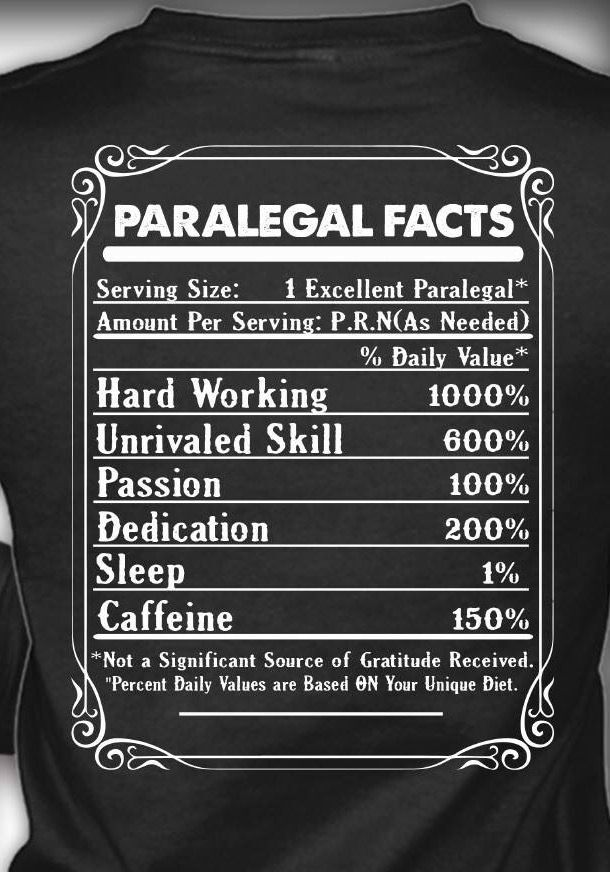Working as a paralegal can be an exhilarating and fulfilling career option, particularly if you relish the idea of working autonomously and having control over your own timetable. Unlike conventional paralegal roles where you are employed by one law firm or organization, freelancing as a paralegal gives you the freedom to collaborate with various clients and handle a wide range of cases. This autonomy enables you to establish a work setting that aligns with your preferences and engage in projects that genuinely captivate your interest.
Understanding the Role of a Freelance Paralegal

As a self employed paralegal your job is to support lawyers and clients with different legal duties as needed. This may involve researching the law writing documents arranging case materials and getting ready for court proceedings. Unlike paralegals who work directly for a law firm freelancers typically handle several cases and clients simultaneously necessitating excellent organizational abilities and efficient time management skills.
Here’s an overview of the usual duties involved in the role.
- Legal Research: Investigating case law, statutes, and legal precedents relevant to ongoing cases.
- Document Drafting: Preparing legal documents such as briefs, motions, and affidavits.
- Client Communication: Interacting with clients to gather information and keep them updated on case progress.
- Case Organization: Maintaining and organizing case files, evidence, and other critical documents.
Based on what I have seen every client has different requirements, so being flexible and adaptable is really important for doing well in this job.
Also Read This: How to Make a Fiverr Description That Stands Out
Essential Skills and Qualifications

To succeed as a freelance paralegal it's important to have a mix of skills and qualifications. Here are the key areas you should concentrate on:
- Legal Knowledge: A solid understanding of legal procedures and terminology is essential. A formal paralegal certification or degree in legal studies can be very beneficial.
- Research Skills: You must be adept at researching case law and legal documents efficiently. This often involves using online legal databases and library resources.
- Organizational Skills: Since you’ll be handling multiple cases, strong organizational skills are vital to keep everything in order.
- Communication Skills: Clear and effective communication is key, both in writing and verbally. You need to convey complex legal concepts in a way that clients can understand.
- Attention to Detail: Accuracy is crucial in legal work. Even small errors can have significant consequences.
Throughout my experiences I’ve discovered that blending these abilities with a love for law makes the job not only rewarding but also more manageable. It’s not solely about possessing the credentials; it’s about leveraging them to meet the needs of your clients efficiently.
Also Read This: How to Get Positive Reviews on Fiverr
Building Your Freelance Paralegal Portfolio

Building a strong portfolio is essential for freelance paralegals. It’s an opportunity to demonstrate your expertise and background to prospective clients. Begin by gathering a range of materials that showcase your top performance such as case summaries, legal briefs or research papers you’ve conducted.
Here are some tips for creating an impressive portfolio.
- Include Relevant Work Samples: Choose examples that demonstrate your expertise in different areas of law. If possible, include both complex cases and simpler tasks to show your range.
- Highlight Client Testimonials: Positive feedback from previous clients can add significant value to your portfolio. Reach out to past clients for testimonials and include these in your portfolio.
- Showcase Your Skills: Use your portfolio to highlight your key skills, such as legal research, document drafting, and client communication. If you have specific certifications or training, make sure to mention them.
- Keep It Professional: Ensure that your portfolio is well-organized and visually appealing. A clean, professional layout will make a strong impression.
Based on my experiences creating a portfolio goes beyond simply showcasing your past work. Its an opportunity to narrate the tale of your career path. Infuse it with elements and let it reflect your distinct abilities and encounters.
Also Read This: How to Clear Fiverr English Test: A Comprehensive Guide
Finding and Attracting Clients
Acquiring clients as a freelance paralegal might pose some difficulties yet it is definitely possible to succeed with the strategy. Begin by connecting with professionals in your area. Participate in legal conferences, training sessions and gatherings organized by local bar associations. Establishing connections with lawyers can result in valuable referrals.
Here are a few approaches to assist you in drawing in customers.
- Leverage Online Platforms: Create profiles on freelance websites and legal service platforms. These platforms can connect you with potential clients looking for freelance paralegals.
- Develop a Strong Online Presence: Build a professional website or blog where you can share insights and showcase your expertise. This helps in establishing yourself as a knowledgeable and reliable paralegal.
- Network with Legal Professionals: Reach out to law firms and attorneys. Sometimes, they need freelance paralegals for specific projects or overflow work.
- Offer Free Workshops or Webinars: Hosting workshops or webinars on legal topics can help demonstrate your expertise and attract potential clients.
When I first started out as a freelancer I discovered that building connections and showcasing my expertise brought me the best client partnerships. Its important to step outside your comfort zone and share your skills with others.
Also Read This: Is Fiverr Overvalued? An In-Depth Analysis
Setting Your Rates and Managing Finances
To run a thriving freelance paralegal venture its crucial to establish rates and handle your finances wisely. Begin by looking into norms in the field to find a rate. Keep in mind that your rates should take into account your background, expertise and the level of complexity involved in the tasks you take on.
Here are some ways to go about determining your rates and handling your financial matters.
- Determine Your Rate: Consider factors such as your level of experience, the type of legal work, and the client’s budget. You might charge by the hour, by the project, or on a retainer basis.
- Keep Track of Your Income and Expenses: Use accounting software or a simple spreadsheet to track all your financial transactions. This helps in managing your budget and preparing for tax season.
- Plan for Taxes: As a freelancer, you’ll need to set aside money for taxes. Consider working with a tax professional to ensure you’re meeting all your tax obligations.
- Save for Future Expenses: Build an emergency fund to cover any unforeseen expenses or gaps in work. This will provide you with financial stability.
From what I’ve seen grasping the financial side of freelancing can be a bit challenging but it’s essential for achieving lasting success. By establishing objectives and cultivating healthy financial practices you can ensure that you stay aligned with your goals while prioritizing the delivery of work to your clients.
Also Read This: How to Start Work in Fiverr
Legal and Ethical Considerations
Being a freelance paralegal means you have legal and ethical duties to uphold. It’s important to grasp these responsibilities to uphold your professionalism and honesty. Given that you deal with information and engage with legal papers adhering to the right protocols is vital.
Here are some key considerations:
- Confidentiality: Always maintain strict confidentiality regarding client information and case details. This is not only a legal requirement but also a fundamental aspect of building trust with your clients.
- Conflict of Interest: Avoid situations where you might have a conflict of interest. If you’re working on cases for multiple clients, ensure that you do not take on conflicting cases that could jeopardize your impartiality.
- Legal Compliance: Familiarize yourself with the laws and regulations governing paralegals in your jurisdiction. This includes understanding the limits of your role and avoiding the unauthorized practice of law.
- Ethical Conduct: Uphold high ethical standards in all your interactions. This includes honest communication with clients, avoiding any form of misrepresentation, and adhering to professional codes of conduct.
Based on what I have seen dealing with these legal and ethical issues has played a role in my career development. Its essential to keep yourself updated and ask for guidance if you are unsure to make sure that your work stays within the limits and morality.
Also Read This: Why Is Everyone on Fiverr from Nigeria?
Tips for Success as a Freelance Paralegal
To thrive as a freelance paralegal it takes more than just possessing the necessary skills. It requires efficient work management fostering strong client connections and consistently enhancing your knowledge in the field.
Here are some practical tips for success:
- Stay Organized: Effective time management and organization are key. Use project management tools and calendars to keep track of deadlines and tasks.
- Invest in Professional Development: Keep updating your skills through courses, workshops, and seminars. The legal field is constantly evolving, and staying current is essential.
- Build Strong Relationships: Maintain good communication with clients and be responsive to their needs. Building strong relationships can lead to repeat business and referrals.
- Market Yourself: Regularly update your portfolio, engage in networking opportunities, and promote your services online. A well-crafted personal brand can help you stand out in a competitive market.
- Maintain a Work-Life Balance: Freelancing offers flexibility, but it’s important to set boundaries to avoid burnout. Schedule regular breaks and manage your workload to maintain a healthy balance.
Throughout my experience as a freelance paralegal these insights have proven to be extremely helpful. Taking initiative in handling your work and consistently aiming for improvement will lead you towards achieving success.
Also Read This: How to Delete Fiverr Messages: A Step-by-Step Guide
Frequently Asked Questions
1. What qualifications do I need to become a freelance paralegal?
Typically, a formal paralegal certification or a degree in legal studies is required. Some clients may also look for specialized knowledge in certain areas of law.
2. How do I find my first clients?
Start by networking with legal professionals, leveraging online freelance platforms, and showcasing your expertise through a well-organized portfolio and website.
3. What should I charge for my services?
Rates can vary depending on your experience and the complexity of the work. Research industry standards and consider your qualifications when setting your rates. It’s also helpful to offer flexible pricing options.
4. How do I manage multiple clients and projects?
Effective organization and time management are key. Use tools like project management software to keep track of deadlines and tasks, and communicate clearly with clients about project timelines.
5. Are there any legal restrictions on freelance paralegals?
Yes, it’s important to understand the legal restrictions in your jurisdiction, such as avoiding the unauthorized practice of law and maintaining client confidentiality. Always stay informed about local regulations.
Conclusion
Starting out as a freelance paralegal can be tough but also incredibly fulfilling. From establishing your portfolio to juggling clients and grasping legal ethics every aspect is vital for creating a thriving freelance career. Looking back on my journey I’ve come to realize that the secret to succeeding in this field is striking a balance between professionalism and a personal touch. Embrace the freedom and autonomy that freelancing brings stay dedicated to your growth and always prioritize building strong client relationships. With the mindset and approach you can transform your freelance paralegal path into a rewarding and prosperous endeavor.




